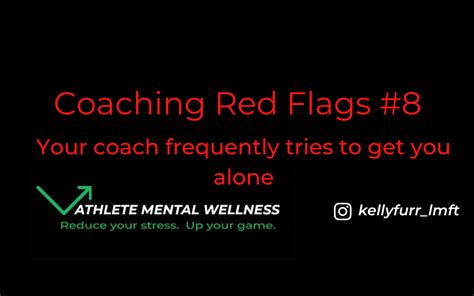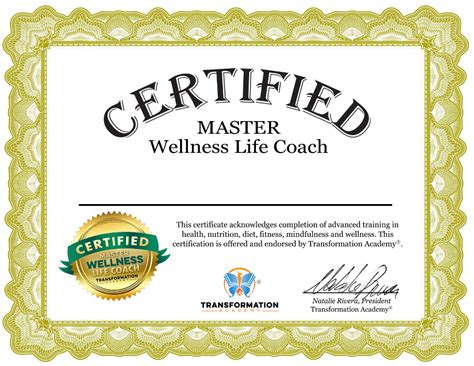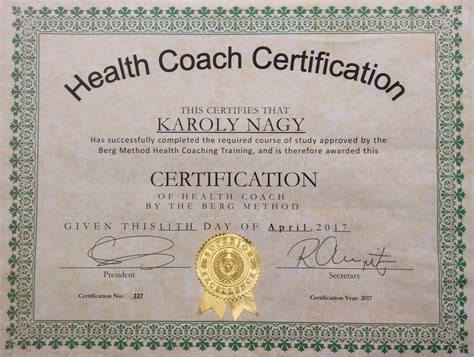How to Recognize Fake Wellness Coaching: Spotting Red Flags
The wellness industry is booming, with people increasingly seeking guidance to improve their physical, mental, and emotional well-being. However, this surge in demand has also attracted individuals with questionable credentials and intentions, leading to the rise of fake wellness coaches. It’s crucial to be discerning when choosing a wellness coach to ensure you’re investing in your health and well-being wisely.
This article will equip you with essential knowledge and practical tips to differentiate genuine wellness coaches from those lacking integrity and expertise. By understanding red flags and recognizing legitimate credentials, you’ll be empowered to make informed decisions about your wellness journey.
What are the biggest red flags to look out for when looking for a wellness coach?
Identifying red flags is crucial to filtering out fake wellness coaches. A genuine coach prioritizes your well-being and supports your individual needs. Here are some of the biggest red flags to be wary of:
- Unrealistic Promises and Quick Fixes: Be cautious of coaches promising miraculous results or rapid transformations. True wellness requires time, effort, and consistency.
- Lack of Qualifications or Credentials: A reputable coach should have relevant education, certifications, or training in the area they specialize in.
- High-Pressure Sales Tactics: Genuine coaches focus on building trust and understanding your goals. If a coach is pressuring you to sign up immediately or feels pushy, proceed with caution.
- Overly General Advice: A good coach will tailor their approach to your unique needs and circumstances. Avoid coaches who offer generic advice that lacks personalization.
- Emphasis on Products or Supplements: While some coaches might recommend products or supplements, be skeptical if they primarily focus on selling them rather than providing personalized guidance.
Remember, your wellness journey is personal and requires a coach who understands your needs and values. By being alert to these red flags, you can avoid falling prey to fake coaches and find the support you need to achieve your health and wellness goals.

How can I tell if a wellness coach is legitimate?
Determining the legitimacy of a wellness coach requires due diligence. While red flags can signal potential issues, understanding the criteria for authentic credentials can guide your decision-making process.
Here are some key indicators of a legitimate wellness coach:
- Certifications and Licensure: Depending on the coach’s area of specialization, they might be required to hold specific certifications or licenses. Research your state or country’s regulations for wellness coaching.
- Professional Affiliations: Check if the coach is a member of reputable professional organizations, such as the International Coach Federation (ICF) or the American College of Sports Medicine (ACSM).
- Experience and Training: Inquire about the coach’s experience, training, and the number of clients they have successfully worked with. A solid track record can demonstrate their expertise.
- Positive Testimonials and Reviews: Look for testimonials from previous clients, reviews on online platforms, or referrals from trusted sources. Positive feedback can provide insights into their approach and effectiveness.
- Clear Communication and Transparency: A genuine coach will openly discuss their credentials, qualifications, and approach. They should also be transparent about their fees and services.
When evaluating a potential wellness coach, consider their credentials, experience, communication style, and the quality of their information. By conducting thorough research and asking the right questions, you can make informed decisions and find a coach who truly supports your wellness journey.

What are some common red flags to watch out for in a wellness coach’s marketing materials?
Marketing materials often provide valuable insights into a wellness coach’s approach and professionalism. Examining their website, social media presence, and promotional content can reveal potential red flags.
Here are some common red flags to look out for in a wellness coach’s marketing materials:
- Exaggerated Claims or Miracle Cures: Be wary of coaches who make unrealistic promises or claim to have the magic solution to all your wellness problems.
- Focus on Testimonials Without Verifiable Information: Testimonials can be helpful, but consider the source. Look for testimonials with names, dates, and concrete details about the coach’s impact.
- Lack of Professionalism or Inconsistencies: Poorly designed website, unprofessional language, or inconsistencies in messaging can indicate a lack of attention to detail or seriousness.
- Aggressive or Pushy Sales Tactics: Coaches who use high-pressure sales tactics or pressure you to make quick decisions might be more interested in profit than your well-being.
- Unrealistic Expectations: Be cautious of marketing materials that promise fast and easy results without emphasizing effort, consistency, or the importance of personalized approaches.
Take your time evaluating a coach’s marketing materials and compare them with their stated credentials and expertise. Trust your instincts and look for clear, honest, and ethical communication.

How can I find a legitimate wellness coach in my area?
Finding a legitimate wellness coach in your area can feel overwhelming. However, leveraging resources and taking a strategic approach can streamline your search.
Here are some strategies to find a reputable wellness coach:
- Seek Recommendations: Ask friends, family, or trusted health professionals for recommendations of wellness coaches they have had positive experiences with.
- Utilize Online Directories: Many websites and organizations provide directories of certified wellness coaches, such as the International Coach Federation (ICF) and the American College of Sports Medicine (ACSM).
- Attend Wellness Events: Check for local wellness events, workshops, or conferences that might feature wellness coaches and allow you to interact with them directly.
- Network with Professionals: If you have access to professional groups or networks, consider reaching out to individuals in the wellness field for referrals.
- Explore Online Communities: Participate in online forums or groups related to your wellness interests to connect with individuals who may have experience with wellness coaches.
Remember to thoroughly vet potential coaches by verifying their credentials, reviewing testimonials, and asking clarifying questions. By casting a wide net and using a systematic approach, you can increase your chances of finding a legitimate wellness coach who aligns with your goals and values.
What questions should I ask a potential wellness coach before hiring them?
Asking the right questions is crucial for assessing a potential wellness coach’s qualifications, approach, and compatibility with your needs. Don’t hesitate to engage in a conversation to gather essential information.
Here are some key questions to ask a potential wellness coach:
- What are your credentials and certifications?
- What experience do you have working with clients like me?
- What is your coaching approach and style?
- What are your fees and payment options?
- What are your cancellation policies?
- Can you provide me with references from previous clients?
- What results can I expect from working with you?
- How do you handle confidentiality and privacy?
- What are your ethical guidelines and standards?
- Do you have any specializations or areas of expertise?
These questions will help you understand the coach’s expertise, approach, and values. Pay attention to their answers and how they communicate, as these insights can reveal their authenticity and suitability for your needs.
What is the difference between a certified wellness coach and a non-certified wellness coach?
Certification is a significant differentiator between legitimate and fake wellness coaches. While not always a guarantee of quality, certification typically indicates a level of training and commitment to standards.
Here’s a breakdown of the differences:
| Characteristic | Certified Wellness Coach | Non-Certified Wellness Coach |
|---|---|---|
| Training and Education | Completed a recognized certification program, often involving coursework, practical experience, and ethical guidelines. | May have some training or experience, but lacks formal certification from a reputable organization. |
| Credentials and Expertise | Possesses verifiable credentials, demonstrating knowledge and skills in wellness coaching. | May claim expertise without formal credentials, potentially lacking the depth of knowledge and training. |
| Professional Standards and Ethics | Adheres to ethical guidelines and professional standards set by certifying organizations. | May not be bound by professional standards or ethics, potentially leading to inconsistencies or questionable practices. |
| Credibility and Reputation | Benefits from the credibility and reputation associated with certification, inspiring trust and confidence in clients. | May lack the credibility and reputation of a certified coach, potentially making it harder to build trust and rapport. |
Certification is not a foolproof indicator, but it offers a valuable reference point. It’s essential to research the certifying organization, understand their requirements, and consider the coach’s overall experience and reputation.
Are there any government regulations for wellness coaches?
Government regulations for wellness coaching vary significantly depending on location. Some regions may have specific licensing requirements or regulations for certain types of wellness coaching, while others may have less oversight.
It’s essential to research the regulations in your area. Here are some aspects to consider:
- Licensing Requirements: Some states or countries may require specific licenses for wellness coaches depending on their specialization, such as nutrition coaching or personal training.
- Scope of Practice: Regulations may define the scope of practice for wellness coaches, outlining the services they can offer and the boundaries of their expertise.
- Consumer Protection: Governments might have laws or regulations to protect consumers from fraudulent or unethical practices within the wellness coaching industry.
Staying informed about regulations can empower you to make informed choices and ensure you’re engaging with a coach operating within legal and ethical frameworks.
What can I do if I believe I’ve been scammed by a fake wellness coach?
If you suspect you’ve been scammed by a fake wellness coach, it’s crucial to take action to protect yourself and potentially prevent others from being harmed. Here are some steps to consider:
- Document the Evidence: Gather all relevant information, such as emails, contracts, receipts, and any testimonials or reviews that raise concerns.
- Contact the Coach: Express your concerns and request a resolution or refund if applicable. Keep a record of your communication.
- Report to Relevant Authorities: Contact your local consumer protection agency or law enforcement if you believe the coach is engaging in fraudulent activities.
- Seek Legal Advice: If you’ve suffered financial losses or other damages, consider seeking legal advice to explore your options.
- Warn Others: Share your experience with others to prevent them from falling victim to the same scam. Post reviews on relevant websites or social media platforms to raise awareness.
Remember that you’re not alone. Many people fall prey to scams, and taking steps to protect yourself and seek justice can be empowering.
How can I protect myself from fake wellness coaches?
Protecting yourself from fake wellness coaches requires ongoing vigilance and a proactive approach. Implementing these strategies can enhance your safety and well-being:
- Be Skeptical of Unrealistic Promises: Don’t fall for quick fixes or promises of miraculous results. True wellness takes time and effort.
- Verify Credentials and Qualifications: Research the coach’s background, certifications, and experience. Check for professional affiliations and testimonials.
- Trust Your Instincts: If a coach feels pushy, unprofessional, or overly focused on selling products, trust your gut and move on.
- Seek Multiple Perspectives: Don’t rely solely on one source of information. Compare different coaches and gather feedback from trusted sources.
- Stay Informed: Keep abreast of industry trends, red flags, and scams. Regularly review resources and information about wellness coaching.
- Focus on Your Needs: Prioritize your individual goals and values. Find a coach who understands your unique situation and provides personalized support.
By being informed, discerning, and proactive, you can protect yourself from fake wellness coaches and find the genuine support you need to achieve your health and wellness goals.
Table Summarizing Information in Article
| Topic | Key Information |
|---|---|
| Red Flags | Unrealistic promises, lack of credentials, high-pressure sales, generic advice, emphasis on products. |
| Legitimate Credentials | Certifications, licenses, professional affiliations, experience, positive testimonials, clear communication. |
| Marketing Materials Red Flags | Exaggerated claims, testimonials without verification, unprofessionalism, aggressive sales, unrealistic expectations. |
| Finding a Legitimate Coach | Recommendations, online directories, wellness events, professional networking, online communities. |
| Questions to Ask | Credentials, experience, coaching approach, fees, cancellation policies, references, expected results, confidentiality, ethics, specializations. |
| Certification vs. Non-Certification | Certification indicates training, knowledge, and adherence to standards; non-certification may lack formal credentials and professional oversight. |
| Government Regulations | Regulations vary by location; research licensing requirements, scope of practice, and consumer protection laws. |
| Protecting Yourself | Be skeptical, verify credentials, trust your instincts, seek multiple perspectives, stay informed, focus on your needs. |
Frequently Asked Questions about Fake Wellness Coaches
Here are some frequently asked questions about fake wellness coaches:
What are some common scams in the wellness coaching industry?
Common scams in the wellness coaching industry include:
- Fake credentials: Coaches falsely claiming certifications or licenses they don’t possess.
- Misleading marketing: Using exaggerated claims or testimonials to deceive potential clients.
- High-pressure sales tactics: Urging clients to sign up for expensive programs without proper disclosure.
- Product pushing: Emphasizing the sale of supplements or products over personalized coaching.
- Ghosting: Coaches disappearing after receiving payment without delivering promised services.
